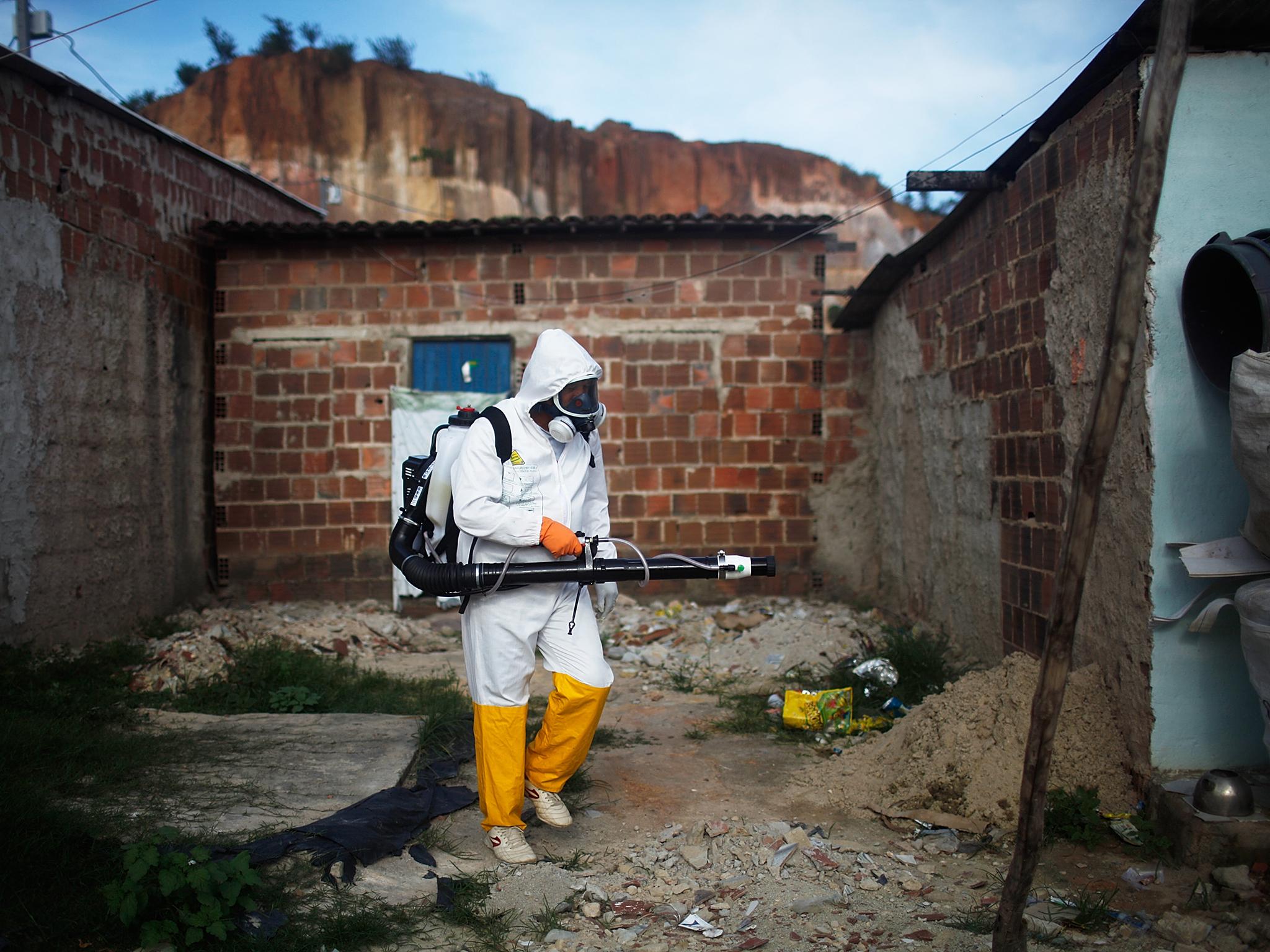A quarter of the population of Puerto Rico are expected to get the Zika virus
One in four of the population are expected to be infected by the end of the year

Your support helps us to tell the story
From reproductive rights to climate change to Big Tech, The Independent is on the ground when the story is developing. Whether it's investigating the financials of Elon Musk's pro-Trump PAC or producing our latest documentary, 'The A Word', which shines a light on the American women fighting for reproductive rights, we know how important it is to parse out the facts from the messaging.
At such a critical moment in US history, we need reporters on the ground. Your donation allows us to keep sending journalists to speak to both sides of the story.
The Independent is trusted by Americans across the entire political spectrum. And unlike many other quality news outlets, we choose not to lock Americans out of our reporting and analysis with paywalls. We believe quality journalism should be available to everyone, paid for by those who can afford it.
Your support makes all the difference.Puerto Rico has reported nearly 2,000 new Zika virus cases in the past week, causing the Obama administration to declare a public health emergency in the US territory.
The newest statistics were released a day after the US surgeon general visited Puerto Rico and said he expected 25 per cent of the 3.5 million population to contract Zika by the end of the year.
The mosquito-borne virus has so far infected at least 10,690 people on the island, including 1,035 pregnant women. Some 1,914 were diagnosed in the past seven days.
Zika has been tied to a severe birth defect known as microcephaly, in which babies are born with abnormally small heads and under-developed brains. It is also associated with still births and miscarriage.
Puerto Rico reported the first microcephaly case to occur on US soil in May in a child lost in a miscarriage. Since then no microcephaly cases have been reported, but federal officials have said it is only a matter of time.
Officials said 90 people have been hospitalised because of the virus, and 30 people have been diagnosed with a temporary paralysis condition known as Guillain-Barre that has been linked to Zika.
Health authorities said they believe the number of Zika cases is much higher than recorded because eight in 10 people show no symptoms and many do not go to a doctor.
The World Health Organisation declared Zika a global health emergency in February.
The declaration of a public health emergency enables the use of public funds to hire workers to eradicate mosquitoes in an effort to reduce the spread of the infection and to educate women of childbearing age on how best to avoid the virus, which can also be spread through sexual contact.
“This administration is committed to meeting the Zika outbreak in Puerto Rico with the necessary urgency," Sylvia Burwell, US health and human services secretary, said in a statement.
Officials are telling people in affected areas to use insect repellents, to fix any damaged screens in their homes and to stay inside as much as possible. They also recommend wearing trousers, long-sleeved shirts and staying in air-conditioned rooms.
Authorities are spraying some areas with insecticide and are removing stagnant water to eliminate mosquito-breeding sites.
Puerto Rico has been grappling with the problem for months, but infections are still spreading.
Join our commenting forum
Join thought-provoking conversations, follow other Independent readers and see their replies
Comments